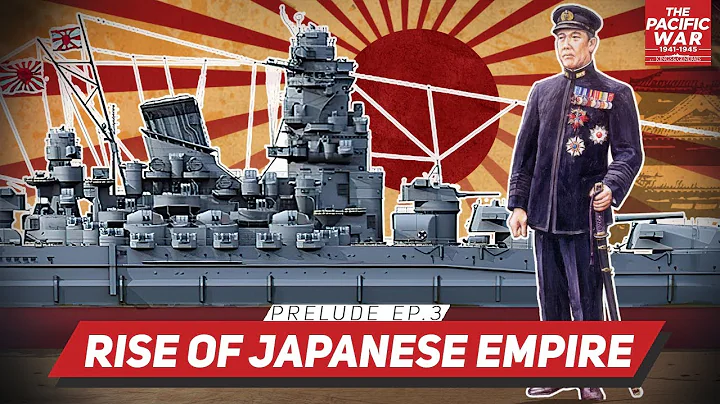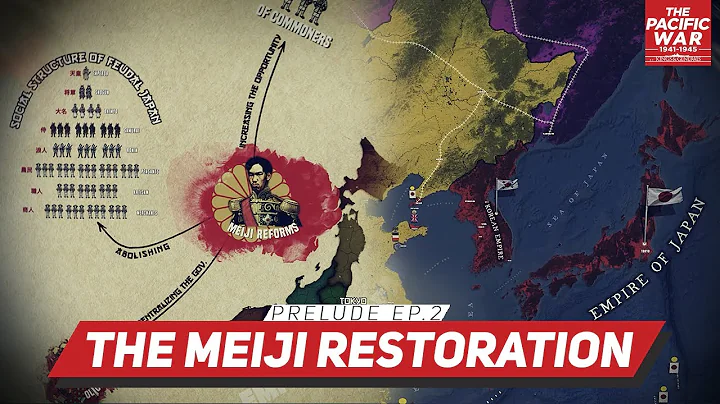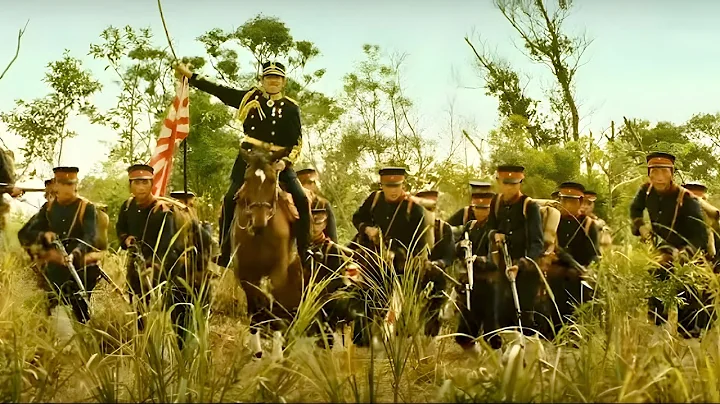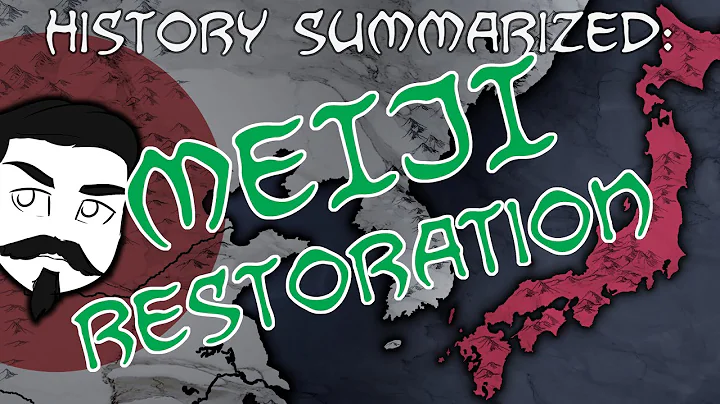Japan's first Prime Minister Ito Hirobumi October 16, 1841 - October 26, 1909), childhood fame and fortune, courtesy name Shunsuke, pseudonym Harumu. A native of Changshu, Japan (now northwest of Yamaguchi Prefecture). A modern Japanese statesman, one of the elders of the Meiji Restoration , the 1st, 5th, 7th, and 10th Prime Minister of Japan. Speaking of Ito Hirobumi, everyone may be a little blind, but Sino-Japanese War of 1898 , " The Treaty of Shimonoseki ", The Russo-Japanese War are the bleeding of every Chinese heart. Hirobumi Ito is the instigator of these three national disasters. His hands are stained with the blood of the people of Asia and China.

The incident where Ahn Jung-geun shot Ito Hirobumi occurred: Harbin Railway Station
Ito Hirobumi was born into the Choshu clan at the end of the Tokugawa shogunate. In 1853, Ito Hirobumi stayed at a temple, and later entered Matsushita Village School. He was educated under Yoshida Shoin, the leader of the reformist lower-level samurai, and was highly regarded by Yoshida. On the night of December 12, the second year of Bunkyu (1862), Ito, along with a dozen swordsmen such as Hisasaka Genzui and Takasugi Shinsaku, sneaked into the area around the newly built British Legation in Gotenyama, Shinagawa. Ito Hirobumi opened the way in front, holding a wood saw, and sawed off. Others filed into the wooden fence surrounding the embassy and threw homemade Molotov cocktails. Intoxicated in the frenzy of fighting against the foreigners. After the Meiji Restoration, Ito Hirobumi formed the government four times and served for seven years. During his tenure, the Sino-Japanese Sino-Japanese War was launched. In the 38th year of Meiji (1905), after Japan won the Battle of the Sea of Japan (Battle of Tsushima Strait) in the Russo-Japanese War, Ito Hirobumi was appointed as the first Governor of Korea, and in the 40th year of Meiji (1907) ) forced the Korean Empire to sign the Third Japan-Korea Agreement, turning the Korean Empire into a protectorate of Japan. This enabled Japan to ascend to the status of the number one power in East Asia. Starting from the 18th year of Meiji (1885), Ito Hirobumi served as Prime Minister of Japan for four times. In February, as Japan's Ambassador Extraordinary and Plenipotentiary, he came to Tianjin, China, to meet with Li Hongzhang, and negotiated with Li Hongzhang on the North Korean issue. This was also his first confrontation with Li Hongzhang. In December, according to Hirobumi Ito's suggestion, the Japanese government abolished the government system and implemented the Western bourgeois cabinet system. Hirobumi Ito serves as Prime Minister and Chamberlain and holds great power.
When the second Ito Hirobumi cabinet was established, preparations for war against China had entered the final stage. In order to prepare for the war against China, the first Yamagata Aritomo Cabinet and the first Matsukata Masayoshi Cabinet both formulated financial budgets with the main content of increasing arms spending, but both were rejected by the parliament. Ito Hirobumi's sophistication was that he did not dissolve parliament or bribe members like his predecessors. Instead, he instigated the emperor to issue an edict to force parliament to make concessions under the Holy Judgment. It was the first time that the emperor suppressed parliament.
In the 26th year of Meiji (1893), an agreement was reached with the United Kingdom to cancel the extraterritoriality of the British in Japan. [11] In the 27th year of Meiji (1894), the Ito Hirobumi cabinet used the Donghak Party uprising in Korea as an excuse to launch the Sino-Japanese Sino-Japanese War of 1894-1894. In July, the Japanese fleet launched an undeclared war and attacked the Chinese fleet at Toshima in the sea west of Korea. On August 1, the Japanese government officially declared war on China. In September, Ito Hirobumi came to Hiroshima with the base camp to participate in commanding the war. Throughout the Sino-Japanese Sino-Japanese War, he participated in all the major decisions made by the Meiji government and the base camp of Japan. He also made suggestions and personally made major decisions, which played a decisive role in the entire war. Soon, the war expanded to the Liaodong Peninsula . In November, the Japanese army captured Lushunkou. Unlike the military represented by Yamagata Aritomo, Ito Hirobumi advocated a controlled war. He believed that bringing the war to Beijing and forcing the Qing Dynasty to sign an "alliance under the city" would likely cause conflicts between Japan and Western powers. confrontation. Ito Hirobumi proposed to send troops to occupy Taiwan, attack Weihaiwei, and completely annihilate the Beiyang Fleet, in order to blackmail the Qing Dynasty into negotiations and force it to cede territory and pay compensation. This major political event showed that among the oriental peoples, Japan was the first to achieve modernization success.After the Sino-Japanese War of 1898-1898, with the development of Japanese capitalism, the power of the bourgeoisie continued to increase, and political party activities increased. Ito Hirobumi was driven by the general trend and turned to win over political parties.
On February 12, the 28th year of Meiji (1895), the Japanese navy won. The Japanese army successively conquered Haicheng, Niuzhuang, Yingkou and other places in Northeast China. The Qing Dynasty was completely defeated militarily and had no choice but to send Li Hongzhang to Japan for negotiations. On April 10, the twenty-eighth year of Meiji (1895), Ito Hirobumi, Mutsu Munemitsu and the Qing government signed the "Treaty of Shimonoseki". According to this new treaty, Japan not only obtained extraterritorial rights and concession rights, but also obtained rights that European and American countries had never had, such as Yangtze River shipping rights. When talking about the Taiwan issue, Ito Hirobumi asked for delivery in one month. Li Hongzhang believed that "the one-month limit is too fast" and asked for an extension of two months, saying, "Why should your country be in a hurry? Taiwan is already on your lips." Ito Hirobumi He replied, "I haven't swallowed it yet, I'm very hungry." At this time, Li Hongzhang was stabbed by a Japanese swordsman. Ito Hirobumi and his personal friend made concessions to the Qing court and wanted to return the Liaodong Peninsula. Later, due to the intervention of Russia, France and Germany, Ito Hirobumi firmly opposed the war with Russia. Japan adopted the policy of making comprehensive concessions to the three countries and not giving in to the Qing Dynasty. Japan returned the Liaodong Peninsula, and as compensation, Japan received another 30 million taels of silver as compensation.

The scene of China and Japan signing the Treaty of Shimonoseki (fourth from the right is Ito Hirobumi)
On the eve of the signing of the Treaty of Shimonoseki, Ito Hirobumi had an evocative conversation with Li Hongzhang, minister plenipotentiary of the Qing government. Ito Hirobumi teased Li Hongzhang: I remember how majestic Nakatō-sama was back then, and he would fight if he couldn't talk about it (referring to the fact that Ito Hirobumi came to China to negotiate with Li Hongzhang because Japan wanted to invade Korea in 1884, but Li Hongzhang flatly refused), but now he really fights, and the result is How? I once gave you a piece of advice, hoping that your country will reform its internal affairs quickly, otherwise our country will surely catch up. Now ten years have passed, have my words come true? Li Hongzhang sighed and said: I have no desire to reform internal affairs, but our country is too big, and the monarchs, ministers, courtiers and assailants are not united in their hearts. They are not as united as your country. What would happen if the two of us moved to different places? Hirobumi Ito thought for a moment and said: If you were me, you would definitely do better than me in Japan; if I were you, I might not do better than you in China. This conversation seems to excuse the "injustice" suffered by Li Hongzhang - the defeat of the Sino-Japanese War of 1894-1899 was not Li Hongzhang's fault. Rather, it is a problem caused by "the country is too big and the monarchs, ministers, court and wild people are not aligned." This problem seems to be something that cannot be solved by an individual.
Throughout Ito Hirobumi’s life, the core of his East Asia policy was North Korea. On November 10, the 38th year of Meiji (1905), after Japan won the Battle of Japan in the Sea of Japan ( Battle of Tsushima ), Ito Hirobumi came to Korea as a special envoy. In March of the 39th year of Meiji (1906), Ito Hirobumi went to North Korea and served as the first Unification Supervisor. He took charge of North Korea's diplomacy, directed the activities of Japanese officials in North Korea, and formulated and promulgated the "Unification Supervision Order". Hirobumi Ito became the "Great Emperor" of North Korea. In July of the 40th year of the Meiji period (1907), Ito Hirobumi used North Korea's Emperor Kojong to send envoys to the Hague International Conference to accuse Japan of aggression, forcing North Korea's Emperor Kojong to abdicate, and forcing North Korea to sign a new "Japan-Korea Treaty." Depriving the North Korean government of power and disbanding the North Korean army a week later, North Korea became an out-and-out colony. He also put on a kind and courteous face. Before the end of each speech, I must not forget to say to the North Korean and Japanese officials present, "I now propose that you please follow me and say long live the Emperor of Korea three times."
Although Ito Hirobumi turned Korea into a protectorate of Japan, Ito Hirobumi himself opposed the union of Japan and Korea. In the cabinet meeting in Meiji 42 (1909), he publicly expressed his opposition, saying that "merger is long-term problem,” is not what many involved in Japan’s North Korea policy think. In the first month of the 42nd year of Meiji (1909), An Jung-geun severed his alliance with eleven martyrs and devoted themselves to the struggle to save the country.In the same year, he learned that Duke Ito Hirobumi, the culprit who invaded North Korea and forced North Korea to sign the "Kisi Treaty" in which it lost its sovereignty, would hold talks with Russian Finance Minister Kokovchev in Manchuria, so An Jung-gen also sneaked to Harbin and pretended to be Japanese. , sneaked into the train station with the help of the Chinese. At 9:00 on October 26, the special train Ito Hirobumi took arrived at Harbin Railway Station. Also accompanying him were Secretary to the President of the Privy Council of Japan Hisatsu Furutani, Secretary to the Imperial Chamberlain Taijiro Mori, physician Yoshino Oyama, Councilor of the House of Nobles Yoshifumi Muroda, South Manchuria Railway Co., Ltd. Directors Nakamura Norikong, Tanaka Seijiro, Kanto Governor's Office Counselor Ouchi Uchinosuke and dozens of others.

Hirobumi Ito was assassinated (second from left)
After the special train arrived, Russian Finance Minister Kokovchev walked into the car and talked with Hirobumi Ito for about 25 minutes. After that, the two walked out of the carriage and inspected the Russian honor guard on the platform. After the military parade, Ito Hirobumi walked towards the Japanese welcoming team. At this time, An Zhonggen rushed out from the welcoming crowd, raised his pistol and shot at Ito Hirobumi. Ito Hirobumi was caught off guard and knocked to the ground. An Zhonggen's pistol contained 8 bullets, and he fired 7 rounds, shooting 3 times at Ito Hirobumi.
The first bullet was shot from outside the center of the right upper arm, entered the right chest rib, penetrated both lungs horizontally, and stayed in the left lung lobe; the second bullet was shot from behind the right joint into the right chest rib, penetrated the chest cavity, and stayed on the left rib. ; The third bullet grazed the outside of the center of the right upper arm, entered the center of the upper abdomen, and stayed in the abdominal muscles. The other four bullets injured Kawakami, the Japanese Consul General in Harbin (his right wrist was penetrated and he was seriously injured), Taijiro Mori and Seijiro Tanaka. Doctor Oyama Zen hurriedly climbed over and untied Ito's gown to treat his injuries. However, because all three bullets were shot into the internal organs, it was difficult to remove them with the simple medical instruments he carried with him; in addition, An Jung-gen used a high-lethal weapon. The powerful bullet made it impossible to stop Ito Hirobumi's internal bleeding. Ten minutes later, Ito Hirobumi died of his injuries at the age of 68.
On June 29, 2013, South Korean President Park Geun-hye mentioned Ahn Jung-geun during her visit to China, praising him as a historical figure respected by the people of both Korea and China, and hoping that China could erect an Ahn Jung-geun monument in Harbin. President Xi Jinping of the People's Republic of China He said he would instruct relevant departments to cooperate.
On November 19, 2013, China's Ministry of Foreign Affairs stated that it would actively promote the construction of the monument, saying that "Ahn Jung-gen is a famous anti-Japanese martyr in history and is also respected in China."
On the afternoon of January 19, 2014, the opening ceremony of the Ahn Chung-geun Memorial Hall located at Harbin Railway Station was held. The memorial hall includes an exhibition room for the deeds of martyr Ahn Jung-gen, the location sign of Ahn Jung-geun's shooting of Ito Hirobumi, etc. Ito Hirobumi location signs, etc. were funded and established by Harbin Municipal People's Government and Harbin Railway Bureau , and are managed by the Harbin Municipal Government and Harbin Railway Bureau. On April 22, 2014, the Ahn Chung-gen Memorial Hall in Harbin is becoming a new place for people from China, South Korea and North Korea to review history. The memorial hall announced that in less than 100 days since its opening, it has received more than 50,000 tourists from various countries.
Due to the reconstruction of Harbin Railway Station, the Harbin An Zhonggen Memorial Hall was moved to No. 85-1 Ansheng Street, Daoli District, Harbin. And reopened on March 19, 2017.
(Author: Niu Honghe)












![Republic of China [Nationalist China] (1912-1949): 新海軍 “New Navy” - DayDayNews](https://i.ytimg.com/vi/iZrdEFAU1-c/hq720.jpg?sqp=-oaymwEcCNAFEJQDSFXyq4qpAw4IARUAAIhCGAFwAcABBg==&rs=AOn4CLDsbZuUSqIJipbNlwn4_wBpyQUmiQ)

![[South-East Asia] [China] (1912/1913) - DayDayNews](https://i.ytimg.com/vi/nhC58dKPR5w/hq720.jpg?sqp=-oaymwEcCNAFEJQDSFXyq4qpAw4IARUAAIhCGAFwAcABBg==&rs=AOn4CLDMOi7fC8DhIdUkZedxiEyoUOHw_A)

![National Anthem of China (1978-1982) [Unofficial] 'March of the Volunteers' ('义勇军进行曲') RE-UPLOAD - DayDayNews](https://i.ytimg.com/vi/sqkXyS0OPao/hqdefault.jpg?sqp=-oaymwEcCOADEI4CSFXyq4qpAw4IARUAAIhCGAFwAcABBg==&rs=AOn4CLDSbKknLtRSCEtUxJyWLGhtGXKrvw)

![[MN] ᠤᠮᠠᠷᠠᠳᠤ ᠬᠢᠯᠢ ᠶᠢᠨ ᠤᠶᠠᠩᠭᠠᠲᠤ ᠳᠠᠭᠤᠤ [Умард хилийн уянгат дуу / 北疆讚歌] (1976) - DayDayNews](https://i.ytimg.com/vi/SDdlIfr4Hsw/hq720.jpg?sqp=-oaymwEcCNAFEJQDSFXyq4qpAw4IARUAAIhCGAFwAcABBg==&rs=AOn4CLCpC_lxnj7TAYgDVqTTEsDa38t67g)


![Republic of China [Nationalist China] (1912–1949) Military Song: "英勇的戰士" (Heroic Warriors) - DayDayNews](https://i.ytimg.com/vi/Nbw1O0o5OHo/hq720.jpg?sqp=-oaymwEcCNAFEJQDSFXyq4qpAw4IARUAAIhCGAFwAcABBg==&rs=AOn4CLBzYxy5yRtE_f9h4_BOj5TgNwj4_A)